-
 Bitcoin
Bitcoin $120400
1.77% -
 Ethereum
Ethereum $3615
7.90% -
 XRP
XRP $3.580
17.84% -
 Tether USDt
Tether USDt $1.001
0.06% -
 BNB
BNB $729.4
1.25% -
 Solana
Solana $179.9
5.04% -
 USDC
USDC $0.0000
0.01% -
 Dogecoin
Dogecoin $0.2311
8.22% -
 TRON
TRON $0.3226
4.04% -
 Cardano
Cardano $0.8490
12.85% -
 Hyperliquid
Hyperliquid $46.45
0.72% -
 Stellar
Stellar $0.4913
8.54% -
 Sui
Sui $4.027
2.00% -
 Chainlink
Chainlink $18.51
11.67% -
 Hedera
Hedera $0.2818
21.51% -
 Avalanche
Avalanche $24.03
7.40% -
 Bitcoin Cash
Bitcoin Cash $508.5
2.90% -
 Shiba Inu
Shiba Inu $0.00001496
3.24% -
 UNUS SED LEO
UNUS SED LEO $8.961
1.83% -
 Toncoin
Toncoin $3.264
3.13% -
 Litecoin
Litecoin $104.6
8.15% -
 Polkadot
Polkadot $4.389
6.11% -
 Uniswap
Uniswap $9.924
10.63% -
 Monero
Monero $337.9
0.49% -
 Pepe
Pepe $0.00001376
2.79% -
 Bitget Token
Bitget Token $4.830
2.46% -
 Ethena USDe
Ethena USDe $1.001
0.05% -
 Dai
Dai $1.000
0.02% -
 Aave
Aave $325.2
1.66% -
 Bittensor
Bittensor $423.7
-0.85%
Can you get a loan using an nft?
NFT-backed loans let users borrow funds by locking their digital assets in smart contracts, offering liquidity without selling.
Jul 05, 2025 at 07:32 pm
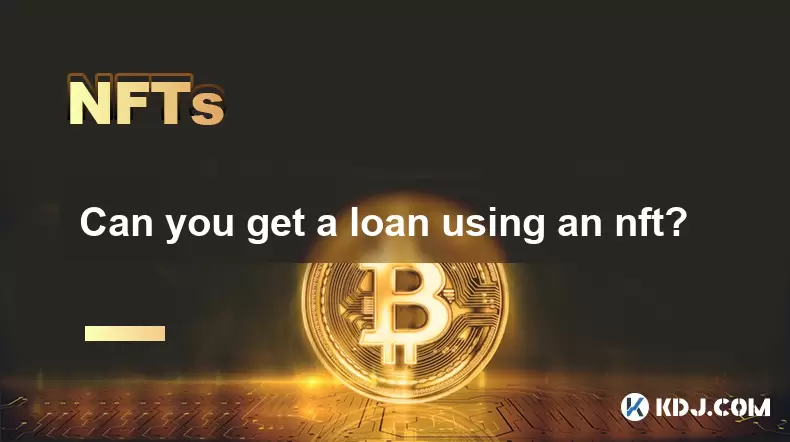
Understanding the Concept of NFT-Based Loans
The idea of using an NFT as collateral for a loan has gained traction in the decentralized finance (DeFi) space. NFTs, or non-fungible tokens, represent unique digital assets on the blockchain. While they are often associated with digital art, collectibles, and virtual real estate, their utility is expanding into financial applications. In traditional finance, physical assets like real estate or vehicles can be used as collateral for loans. Similarly, in the crypto ecosystem, users can pledge their NFTs to borrow funds from lending platforms.
NFT-backed loans work by allowing owners to lock up their NFTs in a smart contract while receiving a loan in return. These loans can be issued in stablecoins or other cryptocurrencies. The value of the NFT determines the loan amount, and interest rates may vary depending on the platform and market conditions.
How Do NFT Lending Platforms Operate?
Several platforms have emerged that specialize in NFT-backed loans. These include NFTfi, BendDAO, and Arcade. Each platform uses smart contracts to facilitate peer-to-peer or pool-based lending. Borrowers list their NFTs as collateral and specify the loan terms, including the amount and interest rate. Lenders then decide whether to fund the loan based on the perceived risk and potential return.
- Smart Contract Execution: Once a borrower and lender agree on terms, the NFT is locked into a smart contract until the loan is repaid.
- Loan Repayment: If the borrower repays the loan plus interest within the agreed time frame, the NFT is released back to them.
- Default Handling: If the borrower fails to repay, the NFT is transferred to the lender, who can then sell it or hold it as an asset.
What Are the Risks Involved?
While NFT-backed loans offer liquidity without selling digital assets, they come with several risks. The most significant is volatility in NFT prices, which can lead to liquidation if the value drops below the loan amount. Unlike traditional assets, NFTs lack standard valuation metrics, making it difficult to assess their true worth.
- Market Volatility: Sudden drops in NFT floor prices can trigger margin calls or automatic liquidations.
- Platform Risk: Smart contract vulnerabilities or hacks could result in loss of funds or assets.
- Liquidity Issues: Some NFTs are highly illiquid, meaning lenders might struggle to sell them if a borrower defaults.
Step-by-Step Guide to Securing an NFT Loan
If you're considering using your NFT as collateral, here's how to proceed:
- Choose a Reliable Platform: Research platforms like NFTfi or BendDAO to find one that suits your needs.
- Connect Your Wallet: Use MetaMask or Trust Wallet to connect to the platform’s interface.
- List Your NFT: Select the NFT you want to use as collateral and set your desired loan amount and duration.
- Wait for Offers: Lenders will review your listing and submit offers based on their risk assessment.
- Accept a Loan Offer: Choose the best offer and accept it. The NFT will be locked in a smart contract, and the loan funds will be sent to your wallet.
Are There Alternatives to NFT-Backed Loans?
If borrowing against your NFT seems too risky, there are alternatives to consider. You can sell your NFT directly for cryptocurrency or fiat, though this means losing ownership of the asset. Another option is to participate in NFT rental markets where you lease your NFT to others for a fee. Some DeFi protocols also allow staking NFTs to earn yield, although this typically doesn’t provide immediate liquidity like a loan.
- Selling Your NFT: Provides instant cash but forfeits future appreciation or utility of the asset.
- Renting Out NFTs: Gaining popularity in gaming and metaverse projects, allowing temporary access for a fee.
- Staking for Yield: Certain NFTs can generate passive income through staking mechanisms built into specific ecosystems.
Frequently Asked Questions
Q: Can I get a fiat currency loan using an NFT?
Currently, most NFT lending platforms operate with cryptocurrency loans only. However, some services may offer indirect methods to convert crypto proceeds into fiat after borrowing.
Q: What happens if my NFT gets stolen before I take out a loan?
If your NFT is stolen prior to initiating a loan, you won't be able to use it as collateral. Ensure your wallet security is strong and avoid suspicious links or phishing attempts.
Q: How do I know if my NFT is eligible for a loan?
Most platforms accept popular NFT collections like Bored Ape Yacht Club or CryptoPunks. Check the supported collections on the platform or verify if your NFT meets their criteria.
Q: Is there a minimum credit score required for NFT-backed loans?
No, these are collateralized loans, so there’s no need for a credit check. As long as you can provide a valuable NFT, you can qualify for a loan regardless of your financial history.
Disclaimer:info@kdj.com
The information provided is not trading advice. kdj.com does not assume any responsibility for any investments made based on the information provided in this article. Cryptocurrencies are highly volatile and it is highly recommended that you invest with caution after thorough research!
If you believe that the content used on this website infringes your copyright, please contact us immediately (info@kdj.com) and we will delete it promptly.
- MEXC's Q2 Domination: Riding the Crypto Wave to Market Leadership
- 2025-07-18 18:30:12
- Caldera (ERA) Takes Flight: Binance Listing Ignites Crypto Surge
- 2025-07-18 19:10:13
- XRP & Ripple: Regulatory Progress Fuels a New York Minute Rally
- 2025-07-18 18:30:12
- Bitcoin, Crypto Wallets, and Security: Staying Safe in the Wild West of Digital Finance
- 2025-07-18 16:30:12
- Bitget Launchpool Heats Up with Caldera (ERA) Token Rewards!
- 2025-07-18 16:50:12
- XLM Bullish Chart: Analyst Sees Stellar Opportunity
- 2025-07-18 17:10:13
Related knowledge
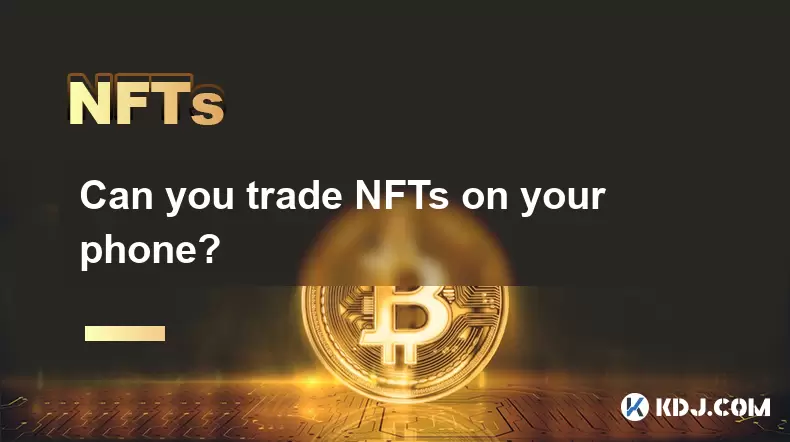
Can you trade NFTs on your phone?
Jul 18,2025 at 04:29am
Trading NFTs on Mobile DevicesYes, you can trade NFTs on your phone, and the process has become increasingly streamlined thanks to a variety of mobile...
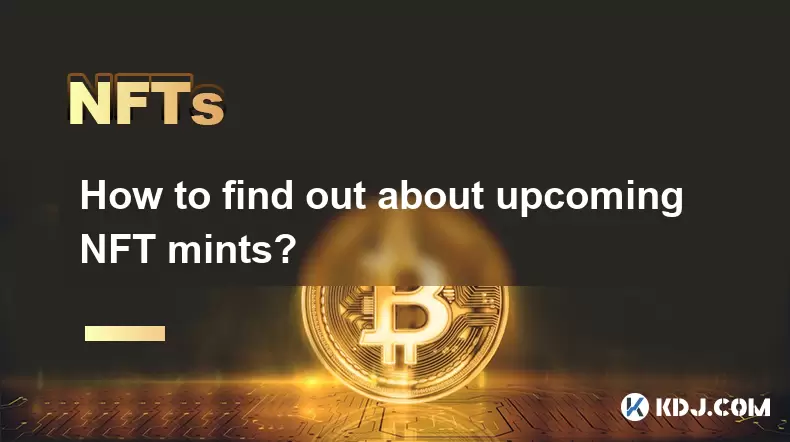
How to find out about upcoming NFT mints?
Jul 18,2025 at 11:50am
Exploring NFT Minting OpportunitiesUnderstanding the landscape of upcoming NFT mints is crucial for collectors, investors, and creators who wish to st...
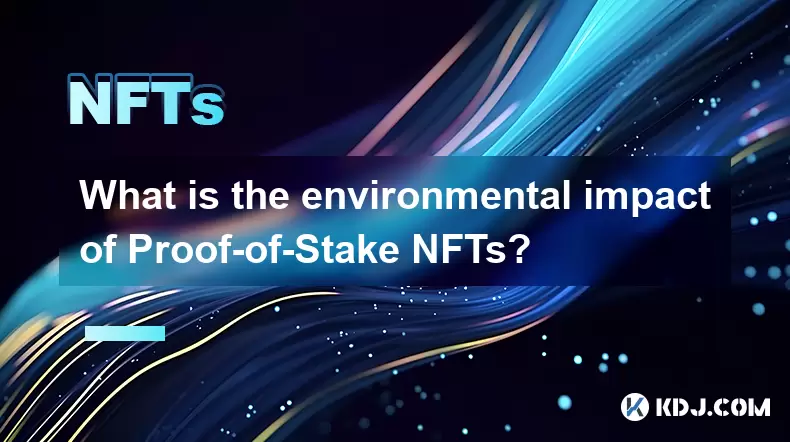
What is the environmental impact of Proof-of-Stake NFTs?
Jul 17,2025 at 07:14pm
Understanding the Basics of Proof-of-Stake NFTsProof-of-Stake (PoS) is a consensus mechanism used by blockchain networks to validate transactions and ...
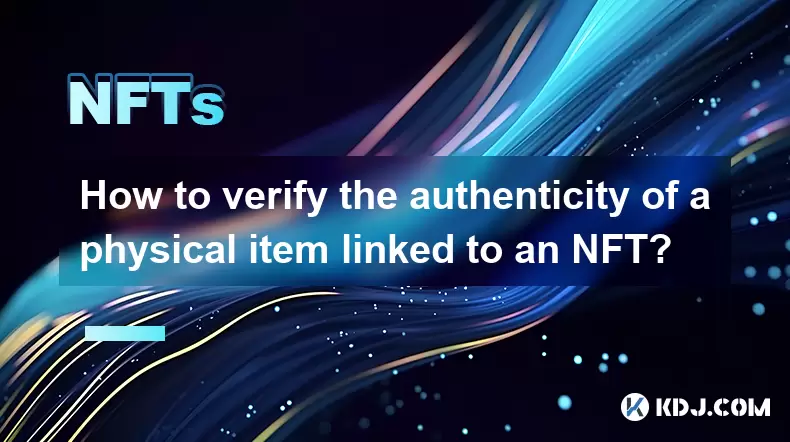
How to verify the authenticity of a physical item linked to an NFT?
Jul 18,2025 at 03:07pm
Understanding the Link Between NFTs and Physical ItemsWhen an NFT is linked to a physical item, it essentially acts as a digital certificate of owners...
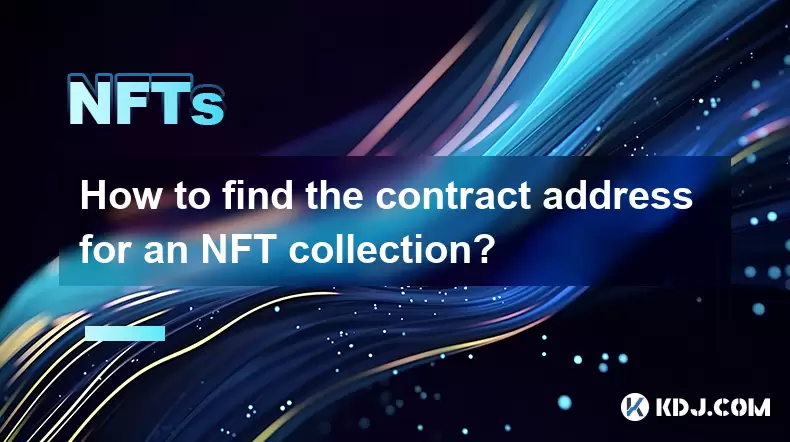
How to find the contract address for an NFT collection?
Jul 18,2025 at 11:56am
Understanding What a Contract Address IsIn the world of non-fungible tokens (NFTs), a contract address is a unique identifier assigned to a smart cont...
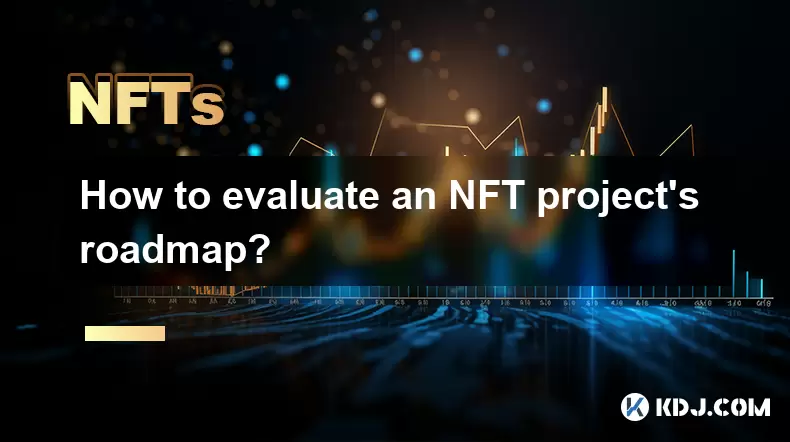
How to evaluate an NFT project's roadmap?
Jul 18,2025 at 01:21am
Understanding the Basics of an NFT Project RoadmapAn NFT project's roadmap is a strategic document that outlines the short-term and long-term goals of...

Can you trade NFTs on your phone?
Jul 18,2025 at 04:29am
Trading NFTs on Mobile DevicesYes, you can trade NFTs on your phone, and the process has become increasingly streamlined thanks to a variety of mobile...

How to find out about upcoming NFT mints?
Jul 18,2025 at 11:50am
Exploring NFT Minting OpportunitiesUnderstanding the landscape of upcoming NFT mints is crucial for collectors, investors, and creators who wish to st...

What is the environmental impact of Proof-of-Stake NFTs?
Jul 17,2025 at 07:14pm
Understanding the Basics of Proof-of-Stake NFTsProof-of-Stake (PoS) is a consensus mechanism used by blockchain networks to validate transactions and ...

How to verify the authenticity of a physical item linked to an NFT?
Jul 18,2025 at 03:07pm
Understanding the Link Between NFTs and Physical ItemsWhen an NFT is linked to a physical item, it essentially acts as a digital certificate of owners...

How to find the contract address for an NFT collection?
Jul 18,2025 at 11:56am
Understanding What a Contract Address IsIn the world of non-fungible tokens (NFTs), a contract address is a unique identifier assigned to a smart cont...

How to evaluate an NFT project's roadmap?
Jul 18,2025 at 01:21am
Understanding the Basics of an NFT Project RoadmapAn NFT project's roadmap is a strategic document that outlines the short-term and long-term goals of...
See all articles

























































































